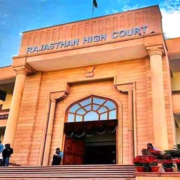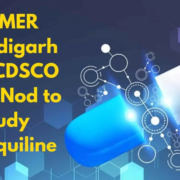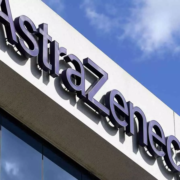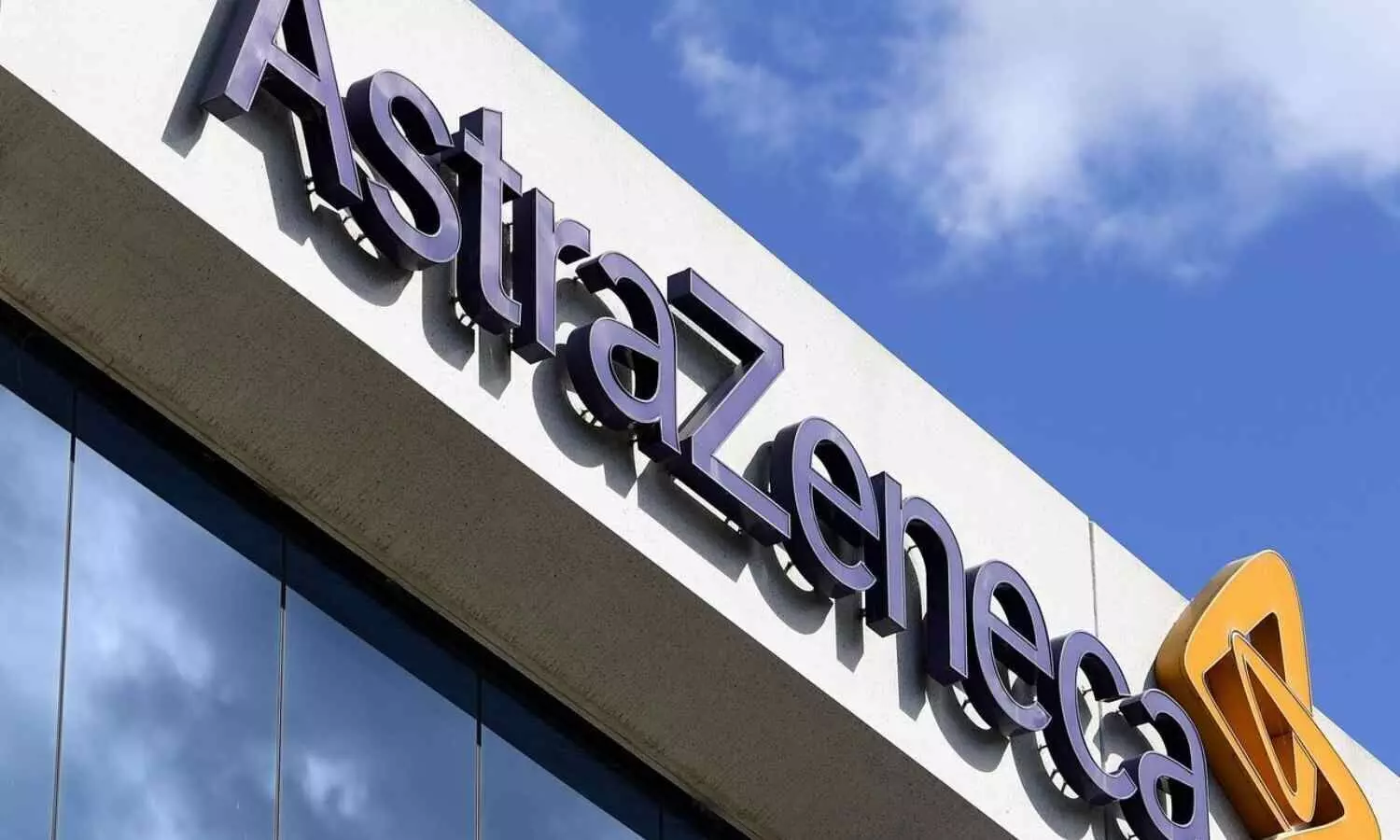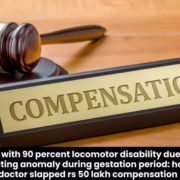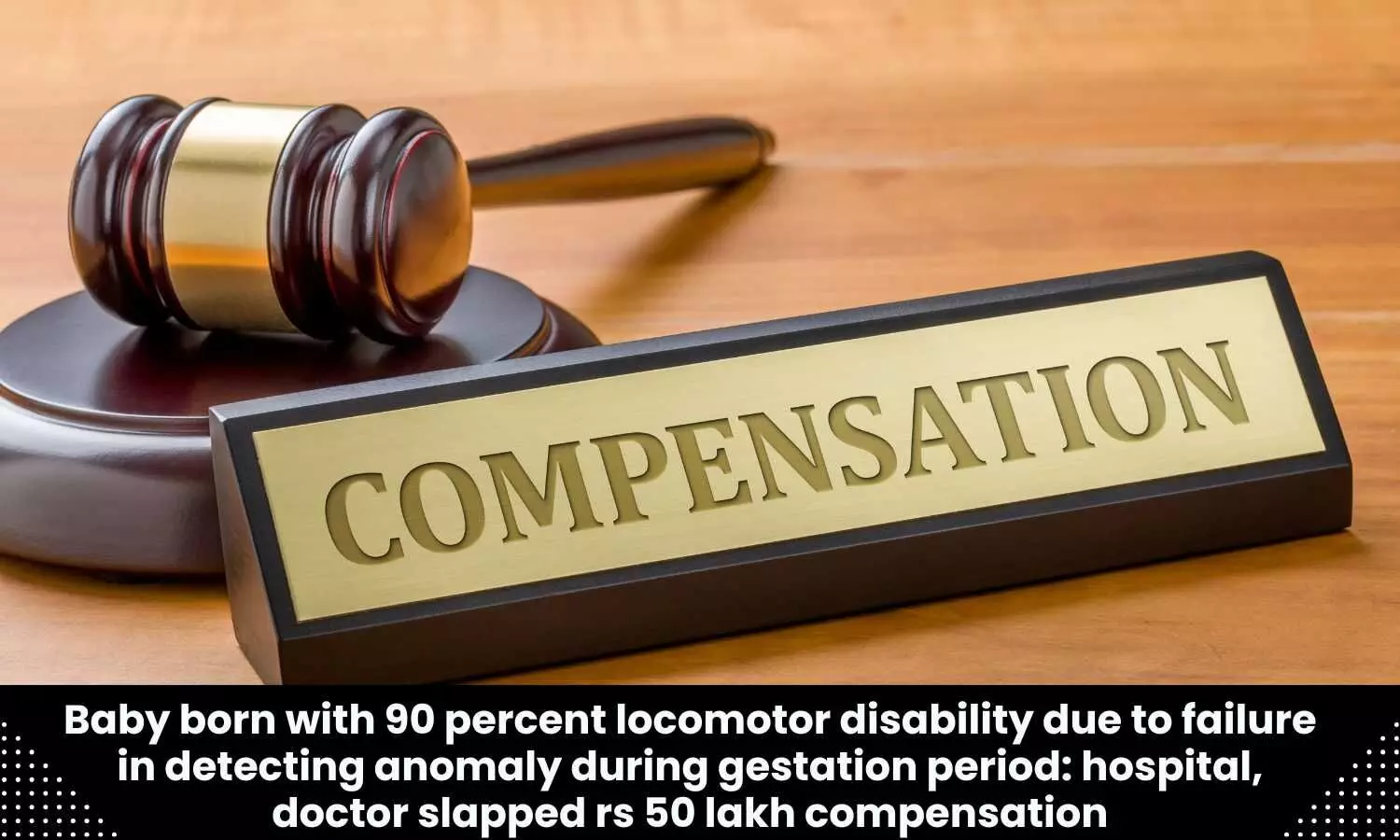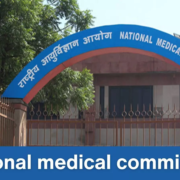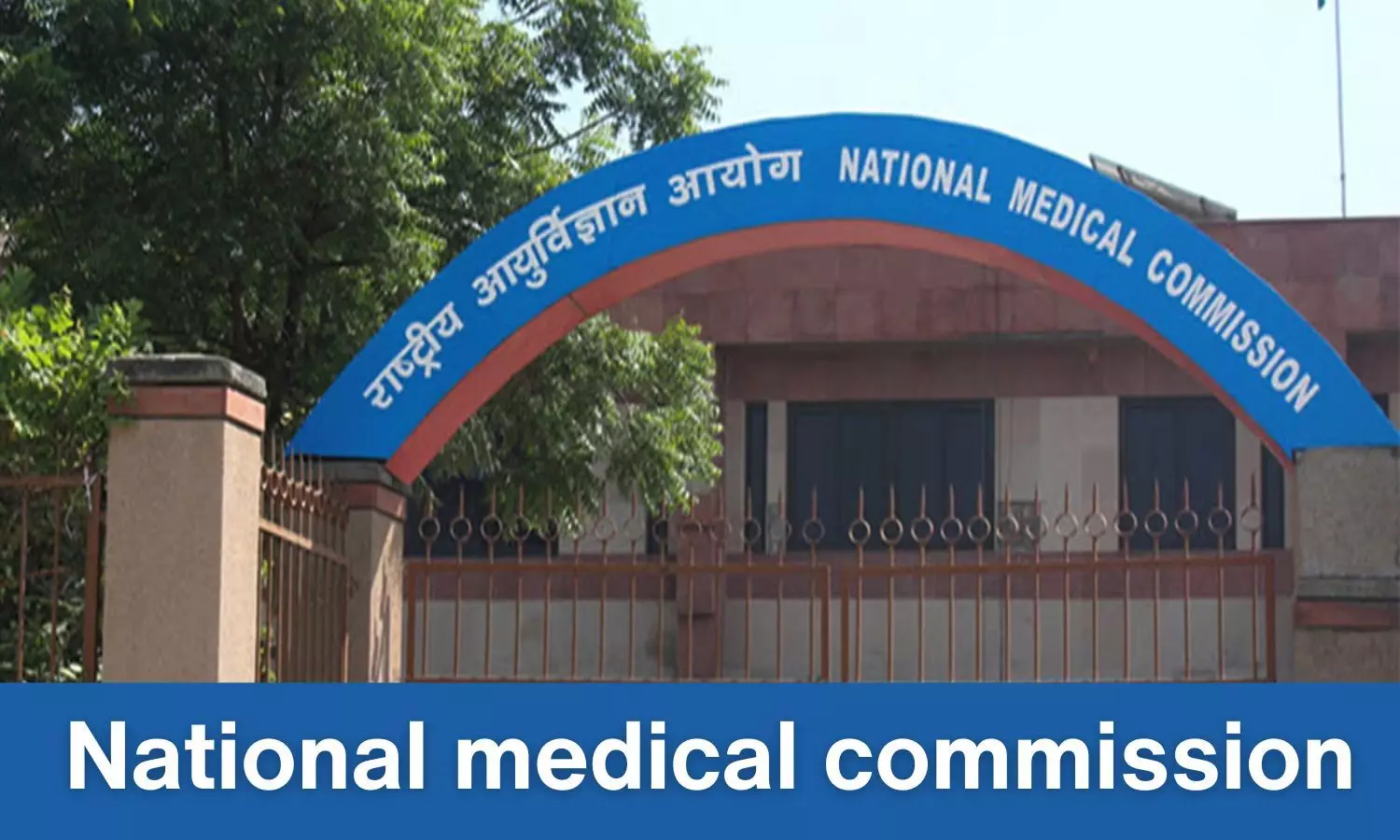HC slaps Rs 1 Lakh Compensation on NMC, State, provides relief to PwD Doctor Denied SRship
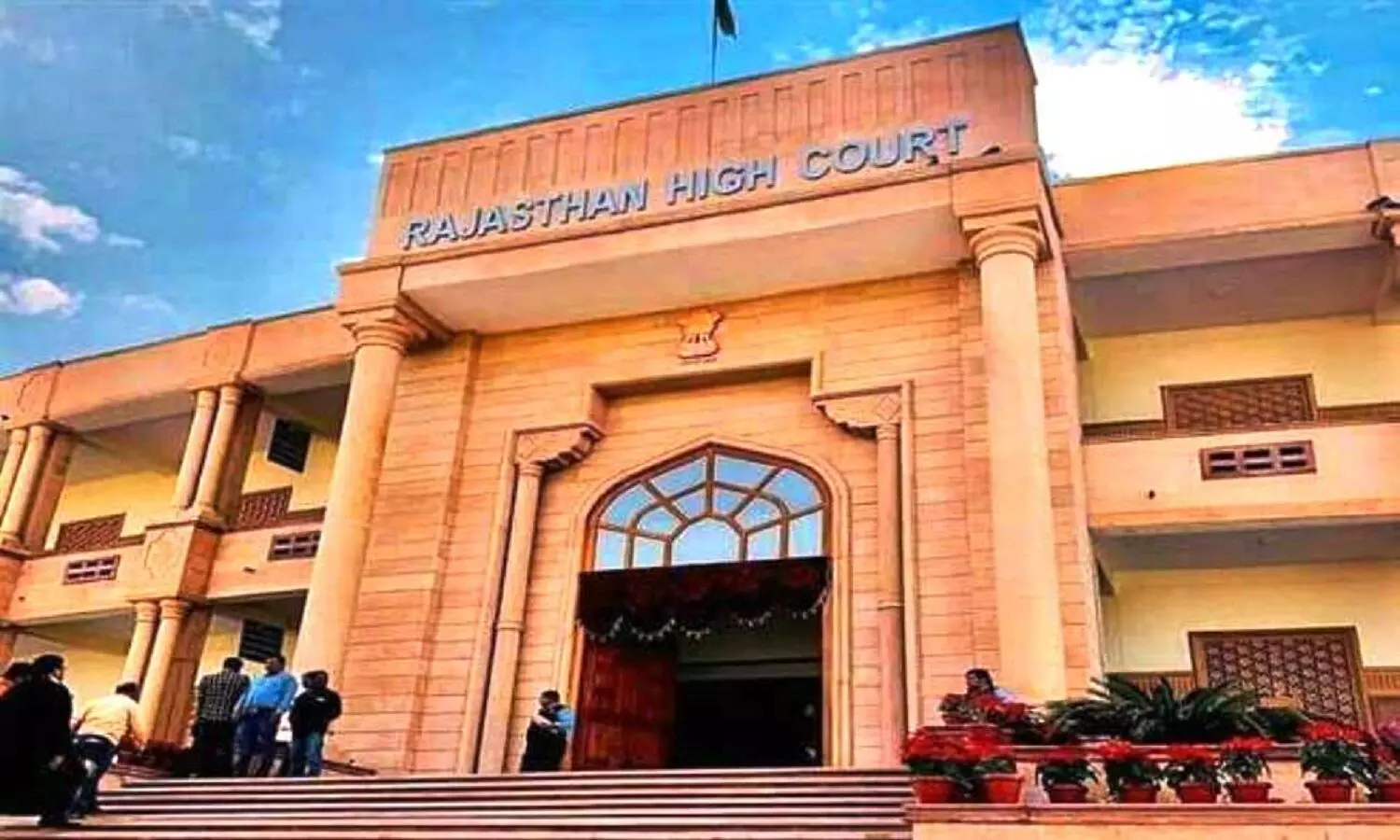
Jaipur: The Rajasthan High Court recently granted relief to a doctor with a benchmark disability, whose application for the post of Senior Residentship was rejected by the State Government authorities as the doctor had crossed the age of 45 at the time of application. Although the doctor argued that being a PwD candidate, he was allowed to get a 5-year age relaxation, the authorities including the National Medical Commission (NMC) opposed his plea.
While considering his petition, the HC bench of Justice Sameer Jain allowed him the age relaxation and directed the NMC and the State to pay Rs 1 lakh cost, to be divided equally, for the delay and hardship caused to the petitioner.
Granting relief to the candidate, the court referred to the Rights of Persons with Disabilities Act 2016 and noted, “…that the provisions of the Act of 2016 and the corresponding Rules of 2018 shall be applicable upon the persons with benchmark disabilities in addition to the regulations formulated under the NMC Act of 2019 nomenclatured as the Teachers Eligibility Qualifications in Medical Institutions Regulations 1998, for achieving the intended benefit of the newly introduced Rule 6A of the Rules of 2018 and also, Annexure-8 i.e. Circular dated 01.12.2021, as issued by the State Government, which provide for the grant of age relaxation for candidates with benchmark disabilities in matters of direct recruitment.”
“As a result, the Regulations of 1998 cannot be permitted to operate in isolation, as a natural consequence of said operation, shall render the benefits enumerated under the Act of 2016 and the corresponding Rules of 2018, otiose,” it held.
Referring to the issue of employment of disabled persons, the Court further observed, “Conclusively, it is noted that employment is a key factor in the empowerment and inclusion of people with disabilities in the society. It is an unnerving fact of the present times that disabled individuals are out of employment, not because their disability acts as a hindrance in their way of functioning; but rather, it is the social and practical barriers created by the society that prevent them from joining the workforce in full effect. As a result, many disabled individuals, who are equally competent as those sans said disabilities, live in poverty due to the denial of their right to make a useful contribution to their own lives and also, to the lives of their families and community. Therefore, in such times, when beneficial pieces of legislation are put in place in the society, equally backed by the practice of leading institutions in the country, the same ought to be duly honoured, so as to not render their intended benefits counterproductive.”
The petitioner, a person with a benchmark disability to the extent of 40%, is working as a Senior Demonstrator with the Medical Education Department. After completing his PG in MD Pediatrics in the OBC PwD Category, he applied to serve the State as Senior Resident on 01.09.2023. However, his name was not on the merit list since the petitioner doctor had crossed the prescribed upper age limit of 45 years.
Challenging the rejection of his candidature, the petitioner approached the High Court and his counsel contended that in terms of Rule 6A of the Rules of 2018, he was entitled to get age relaxation. Therefore, he argued that if granted the said relaxation, his candidature would not have been rejected.
He also pointed out that the Instruction Booklet for allotment to serve the State Government on the post of Senior Resident, provides 4% horizontal reservation for candidates with specified disabilities as per the Rights of Persons with Disabilities Act 2016 and the corresponding Rules of 2018.
The petitioner doctor’s counsel also referred to the fact that the All India Institute of Medical Sciences (AIIMS) Jodhpur also granted age relaxation to persons with benchmark disabilities to the extent of 10 years for PwD-General Candidates, 13 years for PwD-OBC Candidates and 15 years for PwD-SC/ST Candidates. He also pointed out that on a pan-India basis, several medical colleges such as Dr. Ram Manohar Lohia Hospital, New Delhi, Satyawadi Harish Chandra Hospital New Delhi have also granted age relaxation for persons with disabilities.
Further, the doctor’s counsel relied on the notification dated 14.10.2021, issued by the Department of Social Justice and Empowerment Directorate of Specially Abled Persons, providing reservation of vacancies for persons with disabilities. Moreover, as per the newly inserted Rule 6A, a further age relaxation of 5 years is granted to persons with disabilities, in addition to that already provided in the distinct services rules applicable to the different candidates. He also pointed out that in compliance with the circular dated 14.10.2021, the State Government also considered the aspect and provided for the grant of age relaxation to the extent of 5 years through a circular dated 01.12.2021.
On the other hand, the counsel for NMC, Mr. Angad Mirdha argued that the action of the State authorities in rejecting his candidature on the ground of the petitioner being over-age, was purely in consonance with the settled position of law and therefore, warranted no interference of the Court.
In this regard, the counsel submitted that the subject advertisement so issued for the post of Senior Resident, in categoric terms, has specified that the age limit beyond the period of 45 years, at the time of initial appointment, shall make the candidate ineligible for the post of Senior Resident, as the same would be dehors the norms of NMC Act, 2019 and the Regulations of 1998, as amended in the Year 2022 nomenclature as Teacher Eligibility and Minimum Qualification in Medical Institutional Regulations 1998.
The NMC counsel also contended that it was a settled law that when there are specific statutory regulations created under List I of the 7th Schedule, higher standards of medical education ought to be maintained in the country. It was further submitted that the services of Senior Residents form part of the backbone of all major Government Hospitals, for which the legislature in its own wisdom has prescribed the upper age limit of 45 years and therefore, no deviation can be made from the same.
Therefore, the counsel for the Commission argued that the provisions of the Act of 2016 and the Rules of 2018 could not be applied in the present factual matrix. Finally, the counsel relied on Article 254 of the Constitution of India and submitted that in the present set of facts, the NMC Act of 2019 shall assume applicability, as opposed to the Rules of 2018.
While considering the matter, the HC bench noted that through the notification dated 14.10.2021, in the exercise of powers conferred vide Section 101(1) and 101(2) of the Act of 2016, the State Government/Department of Social Justice and Empowerment issued an amendment notification in the Rajasthan Gazette on 21.10.2021, where a novel Rule 6A was introduced in the erstwhile Rules of 2018. As per the concerned Rule 6A, “The maximum age limit prescribed for direct recruitment in the relevant service rules shall be relaxed by 5 years for persons with benchmark disabilities specified under rule 5. Such age relaxation shall be in addition to the age relaxation already provided to different categories in relevant service rules.”
Referring to this, the HC bench noted,
“That even a cursory reading of Rule 6A makes it abundantly clear that the said Rule provides for a relaxation in age for the candidates with benchmark disabilities, by an extent of 5 years, in matters of direct recruitment.”
The Court noted that in compliance with the notification dated 14.10.2021, the State issued a circular on 01.12.2021 and considering this aspect, provided for the grant of age relaxation to the extent of 5 years in matters of direct recruitment concerning persons with benchmark disabilities.
Further, the bench observed that Section 96 of the Act of 2016 provided that the provisions of the Rights of Persons with Disabilities Act 2016 shall be in addition to, and not in derogation of, the provisions of any other law for the time being in force. “In essence, Section 96 stipulates that the mere enactment of the Act of 2016 shall not bar the application of any other provisions of law which are presently in force…Resultantly, Section 96 makes it very clear that the benefits qua the disabled persons shall be in addition to and never in derogation of, any other laws for the time being in force,” noted the Court.
The High Court also perused the Advertisement/Instruction Booklet, as issued by the respondents for recruitment on the post of Senior Resident, read with the Regulations of 1998, which categorically provided that the recruitment on the post of Senior Resident would be for a period not exceeding 3 years, and the graduate who would apply for the said post, must be below the age of 45 years at the time of the initial appointment. The Court also noted that at the time of initial appointment i.e. in the Year 2023, the petitioner was over the age of 45 years.
“In this foregoing background, when it is an admitted fact that the petitioner is an individual with a benchmark disability, who is qualified to avail the benefit of reservation accorded to PwD candidates, the only impediment qua the petitioner’s selection is the rider enumerated under the NMC Act of 2019 and the Regulations of 1998, as amended in the Year 2022, which provide for the upper-age limit for recruitment on the post of Senior Resident to be 45 years on the date of initial appointment,” the bench noted at this outset.
Therefore, the Court noted that the only pretext for which the petitioner’s candidature was rejected was that he was over-age as per the stipulations of the advertisement.
The bench was considering the question of whether the provisions of the Act of 2016 would be applicable to the candidates in addition to the regulations formulated under the NMC Act of 2019 i.e. the Teachers Eligibility Qualifications in Medical Institutions Regulations 1998 or the latter would assume applicability in isolation of the former.
At this outset, the Court noted that back in 2007, India ratified the United Nations Convention on the Rights of Persons with Disabilities. The Convention laid down certain principles to be followed by the signatory States for empowerment of persons with disabilities. It required signatory States to make appropriate changes in law as well as in policy to give effect to the principles of the Convention. Correspondingly, the Act of 2016 was promulgated with the basic aim/object of respecting the difference and accepting the persons with disabilities as part of human diversity and humanity, whilst bestowing them with equal opportunities in all public spheres.
“Therefore, it goes without saying that the Act of 2016 is a beneficial piece of legislation, major features of which include nondiscrimination, participation, equality of opportunity and inclusion of disabled persons within the society. In order to confer statutory backing upon the noted features, the Act of 2016, by way of Section 2(h) and 2(r) has defined ‘discrimination’ and ‘persons with benchmark disabilities’. Moreover, to pave the way for respectable consideration, participation in society and providing equality of opportunity and acceptance, Section 34 has provided for ‘reservation’ which is to be provided by the appropriate Government,” noted the Court.
“Accordingly, in the given facts and circumstances of the case, it is noted that the subject Advertisement for recruitment on the post of Senior Resident i.e. Annexure-3, has duly provided for reservation for PwD candidates, to the extent of 4%, in compliance of the provisions of the Act of 2016 and the corresponding Rules of 2018. Therefore, once reservation as per the Act of 2016 and the corresponding Rules of 2018 is granted for recruitment on the post of Senior Resident, then full swing ought to be granted to the provisions of the said Act and Rules, and a liberal view ought to be taken on the aspect of age relaxation, as is already provided by the newly inserted Rule 6A of the Rules of 2018,” it further observed.
The bench also noted that in exercise of the powers granted under Section 101(1) and 101(2) of the Act of 2016, the Government of Rajasthan promulgated the Rules of 2018, which was amended by the notification dated 14.10.2021, to include the newly inserted Rule 6A which made it abundantly clear that in matters of direct recruitment, the said Rule would provide for a relaxation in age for those candidates with benchmark disabilities, by an extent of 5 years.
“Therefore, at this juncture, taking note of the fact that the concerned Advertisement/Instruction Booklet for recruitment on the post of Senior Resident (Annexure-3), by way of Clause 4, provides for reservations for PwD candidates in compliance of the Act of 2016 and the corresponding Rules of 2018, then in such an eventuality, for the same recruitment process, the newly inserted Rule 6A of the Rules of 2018 shall also assume relevancy, providing for age relaxation of five years to the candidates with benchmark disabilities,” noted the Court.
It clarified that the authorities cannot apply one of the provisions of the Rules of 2018, while ignoring the other and noted, “As a result, the respondents, for the same recruitment process, cannot pick and choose the applicability of the provisions of the Rules of 2018, whereby on the one hand, in compliance of the said Rules, they provide for horizontal reservation to the extent of 4% for persons with disabilities, but on the other hand, refuse to grant age relaxation in terms of Rule 6A, especially in the overarching circumstances whereby it is an admitted position that the All India Institute of Medical Sciences (AIIMS) Jodhpur, vide Annexure-4, has granted age relaxation to persons with benchmark disabilities to the extent of 10 years for PwD-General Candidates, 13 years for PwD-OBC Candidates and 15 years for PwD-SC/ST Candidates.”
When encountered with the task of interpreting the 2016 Act and its corresponding Rules of 2018, the Court underlined that “in order to render social justice amongst the persons with disabilities, candidates belonging to said categories must be awarded proportionally equal opportunities to present a level playing field and provide them with equal opportunities for further acceptance in the society. A harmonious interpretation of the Act of 2016 with the Rules of 2018, especially the newly inserted Rule 6A shall facilitate greater participation in public recruitment for persons with disabilities, which shall inadvertently lead to nondiscrimination with their peers, resulting into equality of opportunity and inclusion of disabled persons within the society.”
The Court observed that “the provisions of the Regulations of 1998/NMC Act of 2019 providing for the upper age limit of 45 years ought to be read in conjunction with Rule 6A of the Rules of 2018, providing for age relaxation to the extent of 5 years.”
It opined that the “intent behind the inclusion of Rule 6A in the applicable Rules of 2018 is to present a level playing field to the candidates with benchmark disabilities, by reducing the upper-age limit as prescribed by the respective statutes, so that such candidates may have greater inclusion and acceptance in vocational fields of study and practice, which were once amiss of their services. Therefore, the benefit which has been given to the candidates with benchmark disabilities vide Rule 6A and also, Annexure-8 i.e. Circular dated 01.12.2021, as issued by the State Government, cannot be taken away from such candidates by subjecting the said Rule and/or Circular, to such conditions of the Regulations of 1998, which would render the intended benefit otiose.”
Referring to the argument that the age relaxation cannot be granted as the advertised post of Senior Resident forms part of the backbone of the State Government’s medical services, the Court observed that the argument was “misplaced”, “especially considering the fact that the State Government, by its own volition, has also made the age of retirement for Senior Medical Professors extendable from 60 to 70 years.”
Allowing the petition, the Court noted that the tenure of the advertised post of Senior Resident has already commenced, which only spans for a limited period of 3 years. Therefore, the Court directed the authorities to allow the petitioner to join the same with immediate effect and it also levied a cost of Rs 1 lakh on NMC and the State, to be divided equally, for the delay and hardship caused to the petitioner, who is a meritorious candidate, subjected to undue hindrances, on account of the unsubstantiated, merit-less and counterproductive obstacles.
To view the order, click on the link below:
https://medicaldialogues.in/pdf_upload/rajasthan-hc-srship-239904.pdf
Also Read: NMC to abolish Age limit of 45 years prescribed for Senior Residents
Powered by WPeMatico

